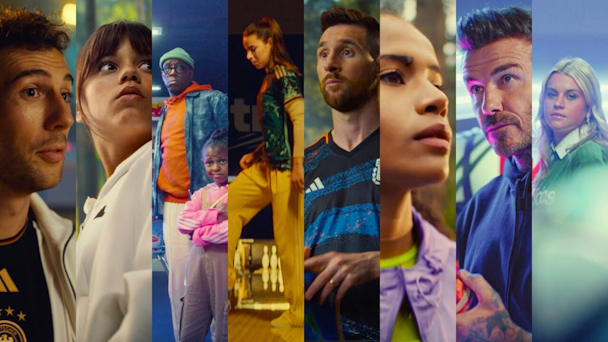To grow women’s football, stop marketing it like the men’s game
Producer and hardened footballer Megan Price is enthused by the growth of women’s sport but firmly believes the marketing is missing a trick.

The feast that is women’s football continues, with the Uefa European Women’s heating up. But before we get pumped for another amazing year of sport, cast your mind back to last year’s Women’s World Cup fever. Just ahead of kick-off, there was an Adidas spot starring iconic footballers: men and women playing as equals. ‘Play until they can’t look away’ was the line. That’s exactly what women’s football has done over the years, female players footballing their arses off - even back when they had to continue working a job around training to pay the bills – until, finally, sponsors have taken notice.
Advertisement
That ad was part of a $308m sponsorship pot cashed in by Fifa. Maybe it was because the Lionesses have been incredible throughout the last Euros and World Cup 2023 that UK audiences have started showing them some love. Still, it feels more like a monumental shift has occurred in how we generally interact with women’s sports - both the fans and the brands.
I played football for 15 years. At my peak, I played left-back at London United – a third-division team assembled mostly of BBC producers, where we saw our fair share of goals. In our own nets, anyway. I’m a long-time fan of the women’s international game, and I’ve watched in awe as women’s sport, more broadly, has changed beyond recognition in just the past three years.
Advertisement
2023 broke the UK women’s sport viewing records, increasing the popularity of competitions such as the Women’s Super League, the Women’s Six Nations, and the ICC T20 World Cup. Broadcasters have given more prominence and airtime to women’s matches, and brands are now taking advantage of the opportunity to connect with a fast-growing audience, aligning their values to support equality in sport. It’ll pay off, too: a new study has shown that the UK population is likelier to buy from and think more favorably of brands supporting women’s sports through sponsorship.
This isn’t just about marketing; it’s about a movement. We’re starting to level the playing field for women’s sports with more eyeballs, fans, and money to improve the game, compensating female players in line with the men’s game. It shows girls everywhere that their dreams and big ideas are meaningful and that their excellence is valid and valuable. Take the Irish FA’s film introducing their Women’s World Cup squad. It showed the faces of the team in murals. The significance of murals as recognition of people with political importance was not lost. It was a definite call to the next generation of female footballers.
This passionate human connection to the women’s game has finally brought in the sponsorship deals it deserves, and that’s important. But also, it’s part of the not-so-quiet revolution to rectify the patriarchy’s hold on all elements of society. We are modernizing the way we talk about sport and how we talk about and value.
Women. Now, that’s an exciting idea brands can get behind to make their storytelling more meaningful in supporting this shift towards equality in sports. Some brands already get this. Adobe Express’s three-year partnership with the Women’s FA Cup is a prime example of how world-renowned brands are stepping up to be involved. A brand that wants to be seen as carving a better future is keen to support this pivotal moment.
Women’s football is not a mirror image of men’s, though. Alongside the competition is a culture of camaraderie, and it’s changing the game entirely. It allows us to tear up the rule book and rethink how sports are represented, enjoyed, and sponsored. Lewes FC’s ownership package sees fans given a share, a vote, and a green beanie to wear with pride as they shout out their dedication to the club.
Suggested newsletters for you
Lewes FC is a bit of an all-round trailblazer. It has committed to paying its men’s and women’s teams equally and giving them equal playing budgets, rightly earning the club the nickname ‘Equality FC.’ UK fashion label Lyle and Scott is Lewes FC’s shirt sponsor. The brand’s focus on community initiatives is gaining a global audience through the attention that Lewes FC receives for their unprecedented approach to equality. A tried and tested benchmark for bigger clubs and other brands to aim for.
And so, what can we expect as sporting figures continue? It’s an Olympic year in which we’ll also see the return of the Tour de France Femmes, the Australian Open, the Women’s Championships League, and the Twenty20, in which England Women will take on Pakistan Women – to scratch the surface. Truly, it’s an exciting time for women in sports, from grassroots games to the world stage, which makes it a thrilling time to be in sports marketing as new opportunities emerge to do captivating work for a growing audience of fans.
Megan Price is the co-founder of production company Be The Fox. Check out The Drum’s International Women's Day coverage here.

